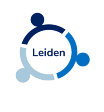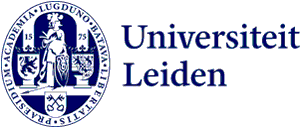
Psychology lab embraces open science
‘If you want to implement open science, you at least need someone at each faculty who can help researchers to solve practical problems.’ Dorien Huijser spent two years managing the transition to a new working method at the Institute of Psychology’s Brain and Development Research Center.
Open science is already on the university’s policy agenda, and in the long term it’s expected that researchers all over the world will work according to this principle. The transition will be easier for some than for others, but more transparency over the whole research cycle will become the norm in Leiden too. This will require a coordinated, structured and measurable approach towards the different aspects of open science.

Ingredients present
The University Library’s Centre for Digital Scholarship (see right) probably knows most about open science at the university at present because by its very nature a library has to understand how to store information and make it assessible. There is also a bottom-up initiative at the university, the Open Science Community Leiden, with enthusiastic researchers, library staff and other research support staff who have even won an Open Initiatives Trophy. And then there is a figurehead, Paul Wouters, Dean of the Faculty of Social and Behavioural Sciences, who is leading the university’s Open Science programme. Together these are the ingredients for a systematic approach to open science, but in practice it is often just a handful of researchers who voluntarily invest their time in the principle.
Brain and Development Research Center
Dorien Huijser graduated in 2019 and did the research for her research master’s in Psychology (Utrecht) at the Brain and Development Research Center. Professor of developmental psychology Eveline Crone, who has since moved to Rotterdam, was in charge then. ‘Eveline realised early on that more transparency was needed in research, in particular in the human sciences, where sensitive data are collected that have to be stored securely and yet accessibly as a source for further or repeat research.’ But that wasn’t all: Crone felt more openness was needed about the entire line of research. ‘Eveline asked if I’d like to come and work for her to find out what was needed and to help with the transition to a more transparent method of work.’ Huijser began to find out about open science.

Idea germinates
When Crone left, Huijser went with her part-time and remained part-time in Leiden. This is now down to just one day a week: the idea that Crone planted in Leiden has germinated. Huijser was able to help the researchers from the lab get started.
Huijser believes that open science should come from two sides: the university has be behind it and develop policy for its implementation, and the researchers have to see its benefit and necessity, and they have to commit to it. Huijser has a hotline to the Centre for Digital Scholarship at the University Library, which has experts in managing research data, for example. ‘They have a wealth of knowledge and experience,’ says Huijser, ‘but because it feels as though they are “far away”, not all researchers can find them straight away.’
Open Science is: transparency about data collection and the way in which researchers reach results and conclusions (methodology). Such information should be available for all research that is conducted. Then there is accessible data storage, following the FAIR principle (Findable, Accessible, Interoperable and Reusable) and open access publication, which means research results should be available to all and shouldn’t disappear behind a publisher’s paywall.
Huijser will soon move to Utrecht University Library, where she will also work on data management and open science, bearing in mind the lessons from the past two years. If your department or faculty would like to transition to open science, these are Huijser’s tips:

- Hire a data manager or open science officer at your faculty or institute even who is in regular contact with the researchers. They can liaise between the experts at the University Library, the researchers and the Open Science Community. They can also help raise the profile of open science among staff and thus coordinate and monitor the transition.
- Other support staff, such as privacy officers and IT experts, are equally important in implementing open science.
- Look at which tools are needed to implement open science, and try to choose ones that are already used in your discipline. This will prevent implementation problems.
- Make sure researchers are well-informed. Organise practical workshops, for instance, and make information on open science (including checklists and other tools) easily available. Also ensure that new staff become familiar with open science and the associated information.
- Include open science practice in the teaching for bachelor’s and master’s students.
- Make the transition to open science as easy as possible and take account of individual differences. Not everyone has the same amount of time or is good at programming, but each step that a researcher takes should count and be celebrated.

Anyone interested in learning more about open science is welcome to join the Open Science Community Leiden. (You can create a member profile and subscribe to the newsletter.) You can follow the OSCL on Twitter: @OSCLeiden.
Leiden University understands the importance of open science and has therefore started an Open Science programme.
- Text: Corine Hendriks
- Picture above article: The drawing is the result of an open science brainstorm by the Young Research Universities (Yerun), a partnership between young scientists from 17 European research universities.
